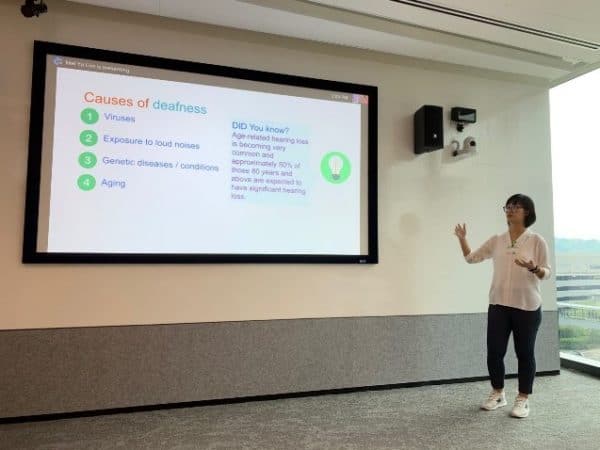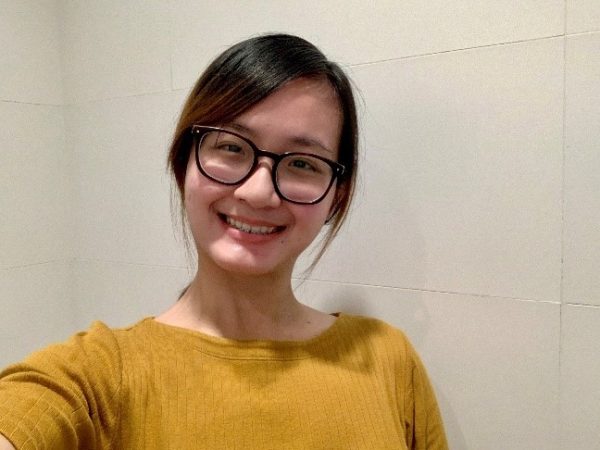Having lived with hearing aids, 23-year-old Vanessa struggled with worsening severe hearing loss just as she started studying at college. After taking a gap year and getting a Cochlear™ Nucleus® 6 Sound Processor, she’s now back at school and sharing her strategies for learning and making friends with her new way of hearing.
Starting college is a significant milestone
For 23-year-old Vanessa, it also proved to be a major turning point for her hearing. Fascinated by the beauty of life and biology, Vanessa had long set her mind on a career in the life sciences as she graduated polytechnic and began studying at Singapore’s Nanyang Technological University (NTU). What Vanessa had not planned was the sudden loss of hearing which left her “with no choice” but to take a gap year from studying to focus on finding an alternate hearing solution to her hearing aids and adjusting to life with a cochlear implant.
After receiving her Cochlear Nucleus 6 Sound Processor, Vanessa was excited to be back pursuing her passion in science. “What I love most about my course is that I get to hear first-hand from professors during lectures about their ongoing research in life sciences,” she says.
Tools to help
Finding herself in lectures of up to 200 people, Vanessa asked the teaching staff to wear assistive devices like her FM device or True Wireless™ Mini Microphone 2+ to stream the audio to her sound processor. This meant that she could sit wherever she wanted to in the auditorium. Vanessa recommends emailing or approaching the lecturer before class to explain your hearing condition and why it’s helpful for them to wear the FM device.
The move to online video calls and lectures hasn’t overly taxed Vanessa. She uses the same strategies for lecture halls, including using her FM device, to hear online video conferences and conference calls. “One big challenge I faced while doing online communication is taking part in group discussions where many people would be talking at the same time, making it hard for me to distinguish who is talking,” says Vanessa. “I think this challenge does not just apply to people with hearing loss.”
Vanessa worked with her social workers to identify other strategies to succeed at college with hearing loss, and identified resources to help transition to university life with her cochlear implant. She cross-checks her notes with those taken by volunteers to make sure she understood everything accurately. This is especially helpful where lecturers have heavy accents – an added hearing challenge. To assist with exams, Vanessa is provided with written instructions and supervisors tap her shoulder to notify her of time remaining.
Step out of your comfort zone
Even if you’re shy by nature, Vanessa recommends stepping out of your comfort zone occasionally to make friends at college. Although it took her a little longer to make friends, Vanessa has found that the friendships she has made are stronger and more meaningful.
“They are very attentive to my hearing needs and never hesitate to repeat what I just missed during classes,” she says. “It was their patience and kind understanding that made me treasure them so much as friends and they definitely made school way more fun and fulfilling!”
For information on a tool to help in the classroom, learn about the Mini Microphone 2+


